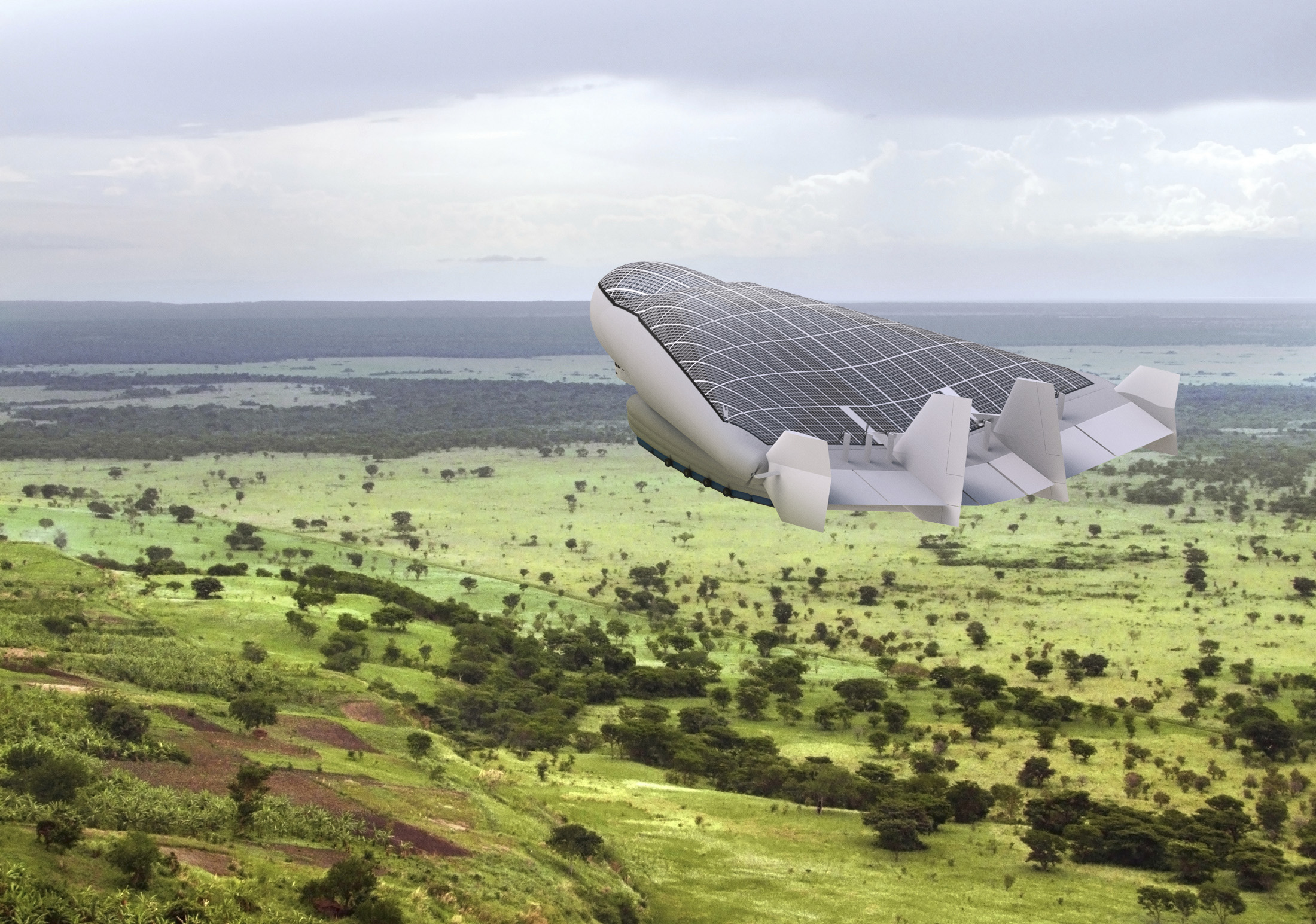The ‘Canadian Richard Branson’
Jay Godsall fits into the category of people who are naturally disruptive, who cannot stand the unexplored possibility of “what if?”. Growing up in a family of bush plane operators, he has spent his whole life figuring out how to help those living in remote areas gain access to the world. I had the opportunity to sit down with him and discuss the founding of Solar Ship, the missions his company has established in Burundi and China, and how he hopes to penetrate Canada’s North with this new method of transport.
The Beginning
As a teenager growing up in Ottawa, Godsall earned pocket money mowing lawns. An entrepreneur at heart, he knew that if he could secure a lawn maintenance contract for embassies, his business would vastly expand. Therefore, he started pitching his business idea to those involved in diplomatic circles. After befriending a young gentleman from the Burundian embassy, Godsall threw a Burundian themed party and invited young adults associated with the other African embassies.
“As soon as the African embassies heard that we were disruptive, they invited us to a lunch where they talked about the problems associated with being landlocked countries in Africa’s Great Lakes Region. I told them that our Canadian North is the king of landlock problems and told them about what the bush plane has done for Canadian Arctic transport. We continued to argue about it, and the conversation turned towards the future of airships. So I went home and did a high school project on the potential for future aircraft, and then my thesis at McGill University, and the idea for Solar Ship started to form.”
Solar Ship: The Reinvented Hybrid Bush Plane
Godsall based the Solar Ship design on the standard features of a bush plane, except he made sure that this aircraft would be able to land in places with no infrastructure and take-off in areas no bigger than a soccer field.
During take-off, lifting gas is used to allow the aircraft to take flight while massive wings get a lot of lift and buoyancy as the Solar Ship rises. The hybrid design includes solar panels placed on the top wing that provide the fuel for flight. These aircrafts are being developed at Hangar 175 in the Brantford Municipal Airport, 100 kms outside Toronto. Solar Ships come in various forms, from aircraft that have an 11 metre wingspan to ones with wings that are as large as 100 metres.
I asked Godsall what sets this aircraft apart from other hybrids, such as Lockheed Martin’s LMH-1.
“The Lockheed ship is big and expensive on a large scale. 90% of people who approach Lockheed can’t afford it due to the scale and price. We are a smaller business and can sell it for cheaper. While their target groups are oil and mining companies, our mission is to go into poor areas and try to make them rich.”
This mentality is what started Solar Ship’s first operation in Burundi- Mission Peace + Freedom. “If you are fine with how things are, with people in remote areas suffering, then don’t do anything. But if you aren’t, then be disruptive and change it.” Godsall knew that there was an opportunity in Burundi to provide a cost-effective method of transporting goods to areas with no roads and infrastructure.
The problem of being able to access remote areas is much larger than people think. “We need to access 90% of the planet and don’t have the cheap tools to do it. Taking a heavy liquid, oil, from one side of the world and dragging it to remote areas is a bad idea. So the question became ‘how to lighten the load of energy in order to get into those places?”’
The answer: “Don’t look at the Great Lakes Region of Africa as a poor remote area- see the cities in these remote areas as the fastest growing markets in the world – those who will be running the show in a matter of years – and ask yourself, ‘how can you access them?’ There is all this potential resource that we are not tapping into.”
The Crazy 2.5%
The first group that Godsall targeted in Burundi he called the “2.5%”. “These are the people who by nature are unable to tolerate the “what if”. They’re the open-minded, crazy ones who are willing to try something new before it is proven. These 2.5% of people have networks of trust that they can transfer to you. They are well-informed on the logistic operations within the area, know how to connect with global money, and while they may not be directly involved with politics, they can introduce you to someone in the political realm. That is why the human factor in this venture is so important.” Doing business in the war-torn Great Lakes region of Africa is not the easiest. Godsall was able to develop strong partnerships that have allowed him to conduct Solar Ship operations there.
It was the relationship that Godsall formed with the African embassies in his teenage years that allowed him to gain invaluable research into the problems facing the landlocked regions of Rwanda, Burundi, and the Democratic Republic of Congo (DRC). The young Burundian man who invited Godsall to the lunch at the embassy is now his business partner of 34 years.
Mission: Access China
Godsall next turned his sights on another huge landlocked region: the plateaus of China. He realised the potential that the Solar Ship aircraft has for servicing the remote areas of China. After approaching the daring 2.5% of Shenzhen, a global city whose amount of financial transactions can be only compared to Silicon Valley’s, he started collaborating with investors on which types of aircraft Solar Ship can provide that would work for the altitude in China.
“I realized that accessing the plateau of Tibet would be amazing for China-Tibet relations. Our partners in China have a deep belief that innovation can solve human problems… they’re not driven by short-term business and profit, they’re driven to solve humanity’s problems.”
Mission: Connect the North (for cheaper)
Godsall now believes that the lessons learned from the missions in Burundi and China can be applied to Canada’s North. “Canada is the bush plane king of the world. What other country with so much remote landmass is more trust-worthy to make an industrial base that would make equipment and fly it to these harsh areas? We have the advanced technology base and the raw ingredients that offer the perfect climate to develop these hybrid aircrafts.”
Godsall hopes that Solar Ship will be able to make a difference in Northern communities. “Our North leads the world in suicide attempts…The current policies that we have in place are a global embarrassment.” Godsall has a plan in place to engage the First Nations and Inuit communities in Solar Ship’s ventures.
“We plan on recruiting those from the 2.5% who are willing to change how their communities are accessed. We will be bringing them to our operations in Burundi and training them on how the equipment works. We will send them home with a pilot’s license to act as ambassadors for our project, so that when we visit the First Nations communities, we can start building our network. It’s a human factor, the north is cross cultural and is unlike the rest of Canada. It is not that we don’t have the technology to change the north, what we are lacking is the human factor.”
The dominant player in the North is the Canadian government, and must of the payload transported there is oil. Therefore, business operations are controlled by the price of oil. “If you can transport goods and services for much less via a hybrid aircraft that does not require oil, there is a great potential for the First Nations enterprises to expand.”
“Real Pioneer Stuff”
What Solar Ship plans to achieve in the Great Canadian Arctic is, what Godsall calls, “real pioneer stuff”. “We will start doing demonstration flights in the extreme north during the summer months. Within the next three years, we plan on covering as much northern territory as possible and readjusting the cost of operations and pilot training in the Arctic. Unlike Africa’s interior where the wind speeds are low, in the vast north there is a massive challenge with headwinds of 60-90 km/h and distances between points of 800-1500km. When you are in the north, you are dealing with big wind challenges.”
Solar Ship’s aircraft will change the mindset of transporting equipment into remote areas, regardless of the price of oil and lack of infrastructure. Godsall, the Canadian Richard Branson, will continue to work on this “disruptive innovation” to connect these untapped economies to global hubs.
Photo: Solar Ship’s Wolverine (2015). Published with permission by Solar Ship.
Credits: The author thanks Matt O’Leary for sharing his insightful thoughts that helped in the making of this article.
Disclaimer: Any views or opinions expressed in articles are solely those of the authors and do not necessarily represent the views of the NATO Association of Canada.




